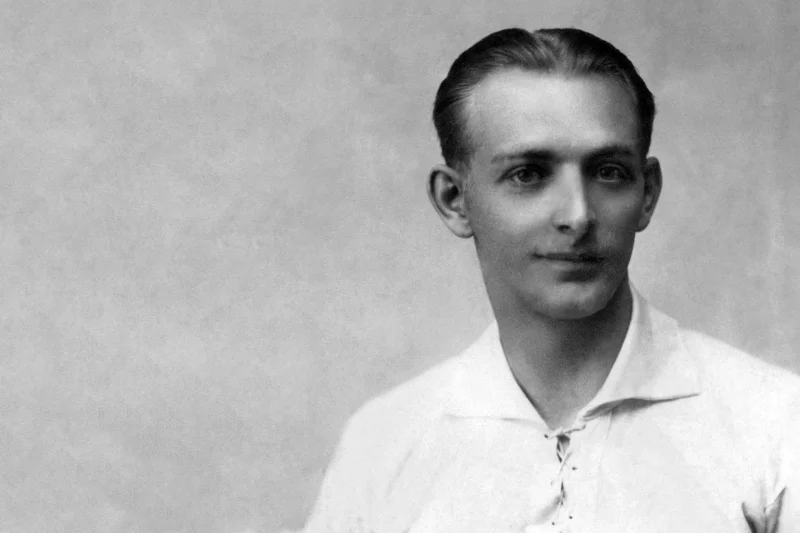Short Summary
Matthias Sindelar was an Austrian footballer renowned for his exceptional skills and creativity on the field. Born in the early 20th century, he became a national hero as part of the Austrian national team, famously known as the "Wunderteam." Sindelar is celebrated for his technical prowess and sportsmanship, earning the nickname "The Mozart of Football." His contributions to the sport, particularly during the interwar period, have solidified his legacy as one of the greatest footballers of his era.
Early Life & Education
Matthias Sindelar was born on February 10, 1903, in Kozlov, Moravia, which was then part of the Austro-Hungarian Empire. His family moved to Vienna when he was a child, where he grew up in modest circumstances. Despite facing financial hardships, Sindelar developed a passion for football at a young age. He joined the local club Hertha Vienna, where he honed his skills, showing remarkable talent and agility. His early experiences in Vienna's working-class districts greatly influenced his playing style, characterized by creativity and finesse. Though formal education took a backseat to his burgeoning sports career, Sindelar's early life laid the foundation for his future achievements in football.
Career Highlights
Sindelar's football career took off in the 1920s when he joined FK Austria Vienna, where he played as a forward. His exceptional dribbling skills and strategic vision quickly made him a key player. In the early 1930s, he became a pivotal member of the Austrian national team, famously known as the "Wunderteam." Under coach Hugo Meisl, the team achieved international acclaim, with Sindelar's performance in the 1934 FIFA World Cup standing out. His ability to navigate the field with elegance earned him the nickname "The Paper Man." Despite the political upheavals of the time, Sindelar remained dedicated to his sport, continuously contributing to both club and country.
Major Achievements
- Played a central role in Austria's "Wunderteam," celebrated for their innovative playing style.
- Led FK Austria Vienna to numerous victories, showcasing his leadership and skill.
- Renowned for his performance in the 1934 FIFA World Cup, reaching the semifinals.
- Recognized as one of the greatest footballers of the 20th century for his technical prowess.
- Contributed significantly to the popularization of football in Austria during the interwar period.
Famous Quotes
- "Football is a dance, and I am a dancer on the field."
- "In football, creativity wins over force."
Interesting Facts
- Sindelar was known as "The Mozart of Football" due to his artistic playing style.
- His nickname "The Paper Man" was due to his slender build and graceful movements.
- Despite opportunities to play abroad, he remained loyal to FK Austria Vienna throughout his career.
- His life and career were cut short under mysterious circumstances in 1939.
- Sindelar's influence extended beyond sports, symbolizing Austrian identity during turbulent times.
Legacy / Influence
Matthias Sindelar's legacy endures as a symbol of elegance and skill in football. His contributions to Austria's national team during the 1930s left an indelible mark on the sport, influencing playing styles and inspiring future generations of footballers. Sindelar remains a cultural icon, celebrated for his artistry on the field and his dedication to the game, embodying the spirit of football as a form of creative expression.
FAQ
Q: Why is this person famous?
A: Matthias Sindelar is famous for being an exceptional footballer and a key player in Austria's "Wunderteam" during the 1930s.
Q: What was Matthias Sindelar's playing style?
A: He was known for his creative and graceful playing style, often compared to a dancer on the field.
Q: What nickname was Matthias Sindelar given?
A: He was nicknamed "The Mozart of Football" and "The Paper Man" for his artistic and light-footed style.









